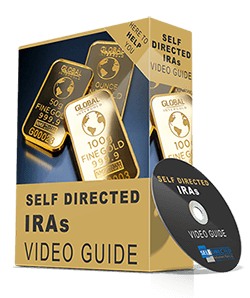What does vested mean?
Being vested in your retirement plan means owning the employer contributions they make on your behalf. Imagine you contribute $100 and your company adds $50. If you’re not fully vested, you might only own a portion of that $50 after leaving the company. The vesting schedule determines how much you gradually own over time.
What is Vested in Retirement?
Vested in retirement means that an individual has acquired ownership or entitlement to specific benefits or funds, typically in relation to a retirement plan. It signifies that the person has fulfilled the necessary requirements, such as years of service, to retain those benefits even if they no longer work for the organization.
It’s a great way to get your retirement savings on track and prepare for the future. This blog post explores – what does vested mean in 401 (K), the different types of vesting, and how the 401(K) vesting schedule affects your retirement savings. Let’s get started!
What Does Vested Mean in 401(K)?
Gaining legal possession of your 401(k) account is called vesting. Some employers give you immediate ownership of the employer’s contributions, but many use a 401(k) vesting period. This means you will acquire complete control and ownership of your retirement assets over a period of years.
How Does Vesting 401(K) Work?
Vesting in retirement terms is the process of gaining full ownership of funds. If you make contributions to your 401(k), they are 100% vested right away. They can’t be taken away even if you quit your job tomorrow. However, to get full ownership of your employer’s matching contributions, you might need to stay with the company for a certain period of time.
Once your 401(K) is fully vested, your employer’s match will stay with you if you retire or change jobs. If you leave before the required time, you might not get all or any of the company match.
What are the Different Types of 401(k) Vesting?
The amount of employer contributions that are vested will be based on the vesting schedule, and employers typically follow one of these three models.
- Cliff Vesting
In case of cliff vesting, you must remain with your employer for a specified time before you can claim the company’s 401(k) contributions. If you leave prior to this period, you forfeit those contributions. - Graded Vesting
Graded vesting grants you access to employer contributions gradually over time. For example, after 3 years of employment, you may be 30% vested and 40% after 4 years. That means, Even if you leave the company before 401(K) is fully vested, you can keep only a portion of the employer’s contributions. - Immediate Vesting
As the name suggests, once any money is placed into your 401(k) account, it is immediately 100% vested in this kind of arrangement. Whether the money comes from you or your employer, you can take it with you whenever you decide to leave.
What’s in 401(K) Vesting for Employers?
401(k) vesting is a process that requires employees to work for a set amount of time before they can access their retirement contributions. This encourages employees to stay with the company longer. The employer’s investment in employees also provides the employees with additional motivation to work harder.
How Can You Know Your 401(k) Vesting Schedule?
It is essential to stay informed about when you will be fully vested in your 401(k) retirement plan. To check your vesting period, contact the benefits administrator or human resource manager at your company. They can inform you of your company’s vesting policy and schedule and provide a plan summary or annual benefits statement.
What if You Leave the Company Before Being Vested in 401(K)?
The money you put in always remains yours. However, your employer’s contributions are yours only once you fully vest. If your employer uses cliff vesting, all of their contributions to your account are taken back if you leave the company before 401(K) is vested. If they use graded vesting, some contributions are taken back.
What to Do With Your 401(K) After Leaving Your Job?
You have a few options if you have money in your 401(k) when you leave your job. You can leave the funds in the employer-operated program or transfer the balance to an IRA. If you have a new job with a 401(k) plan, you can also roll the balance of your old account into your new one.
No matter which option you choose, you can’t make additional contributions to the same 401(k) after you leave the employer.
Is it Worth Leaving a Company Before 401(K) is Vested?
Making the decision to leave a job before the 401(k) vesting period is over can be difficult. There are a few factors to take into account. Consider your reason to leave the job, your employer’s contribution, and the vesting schedule. If the new job offers a much higher salary, it might be worth leaving to start earning more.
Also, look at how close you are to being fully vested. If you are still a few years away on a cliff vesting schedule, it might be easier to justify leaving than if you’re just a month or two away.
Are There Any Exceptions to 401(K) Vesting Schedule?
There could be some exceptions to the usual vesting schedule that are worth taking note of – first is the retirement, and second is the termination of the retirement plan!
When you reach the retirement age determined by your employer, you become fully vested regardless of how long you have been employed or which type of vesting plan is used. Furthermore, if a business decides to discontinue its retirement plan, the funds remain untouchable, and you become fully vested by default.
What are the Pros & Cons of Vesting 401(K)?
Vesting has its advantages and downsides. On the one hand, it incentivizes you to contribute to your savings and secure them simultaneously. It may also compel you to continue with a job you don’t like only for the sake of being fully vested. Moreover, due to associated taxes and penalties, early withdrawals can prove to be costly.
Don’t wait – grab control of your retirement funds today!
The comprehensive solutions of SD Retirement Plans can help you save thousands each year and allow you to access your finances when the time comes.
Need assistance organizing your finances?
FAQs
How do I know if I am fully vested in my 401(K)?
If you’ve met the employer’s timeframe, you’re “fully vested,” which means you’ve earned 100% of the company’s contribution.
What is the vesting period for a 401(k)?
It depends on the 401(K) vesting schedule your employer chooses.
What happens to my 401(k) if I’m not vested?
Your contributions are always yours and cannot be taken away – 100% of them are vested. The only thing that could be lost is contributions from your employer that are yet to be vested, along with any returns on their investments.
If you are still confused, it’s recommended that you speak to a financial expert. Call Rick now!

Rick Pendykoski is the owner of Self Directed Retirement Plans LLC, a retirement planning company based in Goodyear, AZ. He has over three decades of experience working with investments and retirement planning, and over the last ten years has turned his focus to self-directed ira accounts and alternative investments. If you need help and guidance with traditional or alternative investments, call him today (866) 639-0066.




